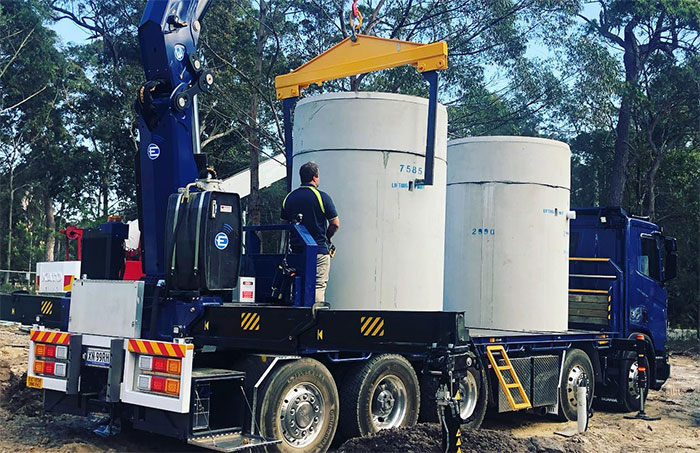Recycling water in your home saves you money and is environmentally friendly
When considering the growing need to preserve water, there are a number of ways in which water can be recycled and reused around your home, these include recycling wastewater and recycling rainwater.
Recycling wastewater
Reusing household wastewater to water gardens or lawns can help save hundreds of litres of fresh water each day. Recycling wastewater for irrigation on single household properties has the potential to not only save significant amounts of drinking water, but also to save on the application of fertilisers to gardens and lawns, which ultimately saves you money.
The NSW Department of Health states that there are three types of household wastewater:
- Black water – this is wastewater that is generated from a toilet, it is heavily and directly contaminated with human waste.
- Grey water – this is wastewater which does not come from a toilet and includes wastewater from a hand basin, shower, laundry and kitchen.
- Sewage – this is a combination of both black water and grey water.
With proper treatment both grey water and black water can be put to good use. Grey water can be used as water in your laundry and for toilet flushing. Both treated grey water and black water are a great source of nutrients when irrigating your lawn and garden. It is important to note that recycled black water is not suitable for use with food producing plants.
Two major benefits of recycled wastewater are:
- Reducing the need for fresh water. Saving on fresh water use can significantly reduce household water bills, but also has a broader community benefit in reducing demands on public water supply.
- Reducing the amount of wastewater entering sewers or on-site treatment systems. Again, this can benefit the individual household, but also the broader community.
If you are considering recycling your household wastewater to reuse in your garden, you need an onsite domestic wastewater management system. These systems are required if your home is not connected to the town sewer line. Onsite single domestic wastewater management systems collect sewage or components such as grey water, where they are then fully treated for utilisation or reuse within the property boundaries.
One onsite domestic wastewater management system that will allow you to do this is an Aerated Wastewater Treatment System (AWTS). A BioSeptic AWTS treats household sewage (black water and grey water) and recycles it as treated effluent that can then be reused in your garden. Wastewater is treated and recycled to the property where it is produced, rather than moving the waste problem to a town sewage treatment plant. If you install a BioSeptic AWTS in your home, it means that you will pay for your water once and use it twice. It is an economical and environmentally solution.
An AWTS is just one onsite wastewater management system available. To find out what other options are available to you, click here and read about Aerated Wastewater Treatment Systems (AWTS).
For more information on how you can install an Aerated Wastewater Treatment System (AWTS) in your new or existing home, contact BioSeptic today on 1300 658 111.
Recycling rainwater
If you are connected to the town sewer line and don’t need an onsite sewage treatment system, there is a way for you to recycle and reuse water around your home too. You can collect and reuse rainwater by installing a rainwater tank. Rainwater collected by a rainwater tank can be connected to your outdoor taps and toilet cisterns. This will allow you to reuse rainwater to flush your toilets, wash your car or water your garden, where you would usually be using (and paying for) towns water. This will help you save money and be environmentally friendly. To find out more about the benefits of rainwater tanks, click here to read our “Benefits of water tanks for new homes” article.
A rainwater tank from Sydney Water Tanks is installed underground which gives you more space for recreation and leaves no tank in view.
For more information on how you can install rainwater tanks in your home, contact Sydney Water Tanks today on 1800 041 111.
Source: http://www.health.nsw.gov.au
Image source: http://sourceable.net/perth-takes-the-lead-in-water-recycling-and-efficiency/





